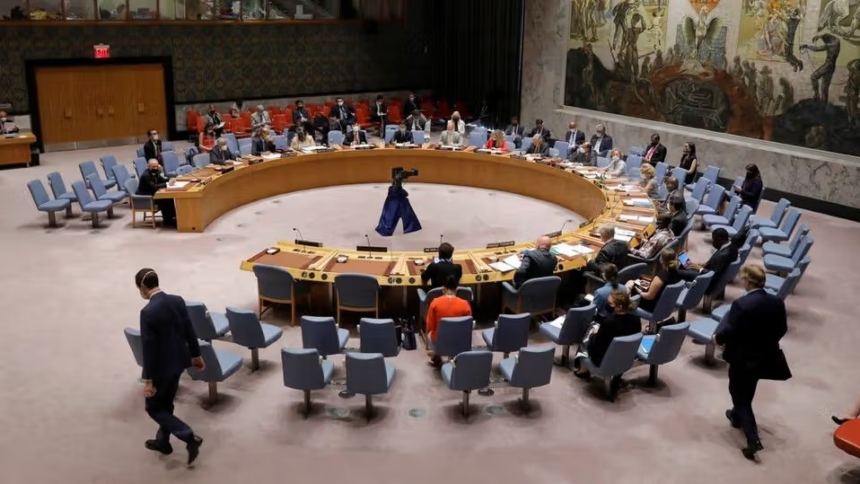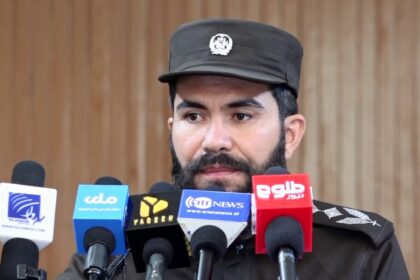RASC News Agency: The United Nations Security Council has announced that it will hold a special session in September dedicated to Afghanistan, with a primary focus on the country’s rapidly deteriorating human rights situation under Taliban rule. According to the UN’s official statement, the session will feature the final report of Roza Otunbayeva, the UN Secretary-General’s Special Representative for Afghanistan, whose mandate concludes at the end of September. Alongside her, a civil society representative and a delegate from the Office of the UN High Commissioner for Human Rights are scheduled to address the Council, ensuring that the voices of Afghanistani victims and human rights defenders are heard on the global stage.
The Security Council has underscored that the human rights crisis in Afghanistan remains dire, with women and girls bearing the brunt of Taliban repression. Recent mass arrests and crackdowns in Kabul serve as stark reminders of the regime’s systematic violations. The most recent UNAMA report, published on August 10, documents in detail the Taliban’s escalating campaign of intimidation, arbitrary detentions, and restrictions, particularly targeting Afghanistani women, girls, and other vulnerable groups. Independent human rights experts have called upon the international community to reject the Taliban’s authoritarian grip on power and resist any efforts to normalize the regime. Richard Bennett, the UN Special Rapporteur on Human Rights in Afghanistan, has emphasized that the Taliban have weaponized the judicial system, transforming it into a tool for persecution against women, girls, and members of the LGBTQ+ community.
In a significant development, the Security Council reminded the international community that the International Criminal Court (ICC) has issued arrest warrants for Taliban leader Hibatullah Akhundzada and Abdul Hakim Haqqani, the group’s chief justice. The ICC concluded that credible evidence exists of their involvement in “crimes against humanity” rooted in systematic gender-based persecution. This marks an unprecedented international legal rebuke of the Taliban’s leadership and further isolates them from the global community. At the same time, the Council highlighted that Afghanistan remains gripped by one of the world’s worst humanitarian crises. More than 22.9 million Afghanistani citizens over half the population require urgent humanitarian assistance in 2025. Food insecurity is particularly alarming: between March and April, an estimated 12.6 million people were classified at crisis or emergency levels of hunger. The situation has been compounded by the mass forced return of migrants. The International Organization for Migration reports that more than 1.5 million Afghanistani migrants have been expelled from Iran and Pakistan, many of whom now face risks of torture, degrading treatment, and irreparable harm upon return.
The Security Council further noted that despite the Taliban’s diplomatic maneuvers to rehabilitate their international standing, the group’s complete disregard for global commitments especially regarding the rights of women and girls remains one of the most serious impediments to international engagement. Their policies stand in direct contradiction to the recommendations of the Independent Assessment on Afghanistan, which has urged inclusive governance and adherence to international law as preconditions for legitimacy. Security Council members also expressed concern about the persistent threat of terrorism emanating from Afghanistan, warning that Taliban-controlled territory risks once again becoming a breeding ground for extremist networks. While there is consensus among Council members on the vision of a peaceful, prosperous, and terrorism-free Afghanistan, deep divisions persist over the methods to achieve that outcome. The United States, France, and the United Kingdom have insisted that Taliban compliance with international norms is a non-negotiable prerequisite for development aid or political recognition.
This upcoming UN Security Council session is expected to not only renew international scrutiny on the Taliban’s abuses but also amplify the urgent call for stronger accountability measures, deeper humanitarian commitments, and a united global stance against legitimizing a regime built on repression, exclusion, and systemic human rights violations.






